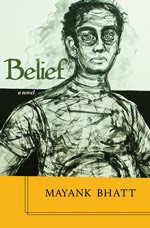
The best period of one’s life is from childhood to adolescence. There’s no care in the world, and everything’s just fine.
As we grow older, we tend to romanticize that period of our lives and create myths and mythologies around that period of our lives to make it seem more interesting than it really was.
This is especially so when we narrate that period of our lives to our children when they are of that age. Most of the times, the stories that we remember of our childhood are either completely fabricated or at least partially, with the more tantalizing bits either added or deleted from the narrative.
The reality of everyone’s life is never ever as exciting as it is made out to be. Quite often we are just too embarrassed to talk about our childhood because of some deeply disturbing events that may have occurred which we try rather desperately (and unsuccessfully) to hide, even from ourselves.
I just read Isabel Huggan’s The Elizabeth Stories, which I borrowed from the library at The Village Terraces, the condominium where I did my first job in Canada.
I'm unlikely to return to that place though I’ll certainly return the few books that I have borrowed.
In addition to some wonderful people that I will sorely miss, and I'm sure they'll miss me, too. I’m also going to miss the library – I wish all condos in the world had such libraries.
Huggan’s book is a thinly veiled autobiography. Her words bring alive the themes of childhood that we all experience only to forget. Elizabeth’s stories are about her childhood, and Huggan remembers them in excrucating details. They are larger-than-life on occasions and insignificant at times; but always compelling told.
These are stories that leave us feeling that childhood injustices have no dénouement; they turn into stinging memories that haunt us for the rest of our lives.
Mid-way through the book, you begin to identify with Elizabethh. Whether you’re a man or a woman, as a child growing up you’re bound to have experienced what Elizabeth does. You could’ve grown up in Garten (somewhere in Ontario) or in Pune (in India). We’ve all experienced those little hurts from which we think we will never fully recover, and the little joys that we want to last for a little bit longer.
Elizabeth realizes – or imagines – that her parents are just too embarrassed about her clumsy ways. She says about her father, “I clearly and absolutely saw how much he wanted me to be a son. And what he had was a daughter who wasn’t even very good at being a girl.”
She never outgrows her separateness from her parents, felt by all children of that age and felt more acutely by Elizabeth. Yet she equally acutely realizes what an odd mixture she is of her parents... “thinking how much I sounded like my father but how like Mavis (her mother) it was to go and lie down. I could never escape them.”
The stories reach out and touch us in an indescribably mellow manner and leave us exulting at having rediscovered something about our own past howsoever mundane it may have been. Elizabeth’s life is all about the plain and ordinary business of growing up.
The three stories that really stand out in the collection are Into the Green Stillness, Sorrows of the Flesh and Secrets. The characters that stand out are Jerry Wheeling, the hyperactive teacher and coach for whom Elizabeth develops a mammoth-sized crush, and who turns out to be a wife-beating misogynist; Esther Bauman, the Mennonite ‘Girl’ who gets so scared when Elizabeth kisses her smack on her lips that she immediately resigns and leaves their home, and of course Mavis – Elizabeth’s mother.
The Elizabeth Stories is a charming book, in a different sort of way; it's not The Wonder Years.












